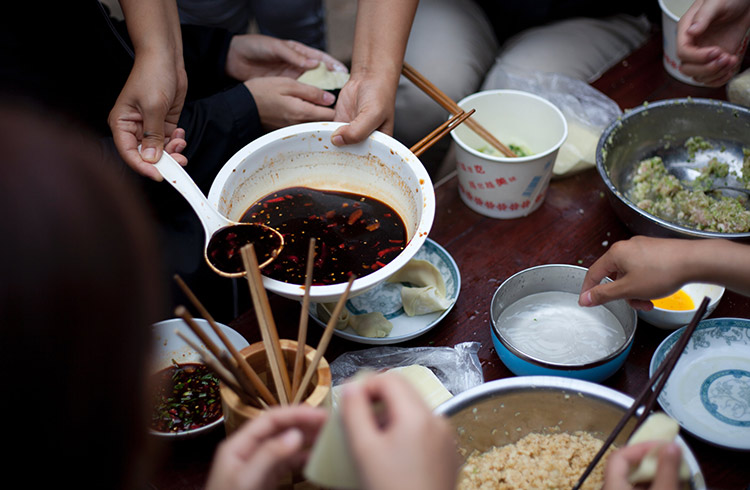5 Local Tips for Travelers to China
From how to use chopsticks to learning the language, Janice Leung Hayes shares her tips picked up from 20 years living in China.
 Photo © Unsplash photo by Frank Zhang
Photo © Unsplash photo by Frank Zhang
With the first Chinese dynasty dating back 4,000 years, it’s easy to feel a little intimidated by the depth of Chinese culture and tradition.
Living in China is an experience, and customs and etiquette differ from province to province, but in my 20 years living here, there are a few things I’ve picked up on how to make life a little easier in China.
- Stop Stressing About Chopsticks
- Your Money is no Good Here
- Christmas vs Spring Festival
- Number Punning
- Different Languages in China
1. Stop Stressing About Chopsticks
When it comes to the ubiquitous utensils, there are a few rules: don’t stand them upright in food, don’t spear food with them, don’t use them to eat directly from serving dishes, and don’t play with or point with chopsticks. One thing you don’t need to worry about is how you hold your chopsticks – no one will care.
These two little sticks are just a means to an end; to get the food from the serving dish to your bowl (always use serving chopsticks for this) and then to your mouth with your personal chopsticks.
If you’re worried you might drop the food, shovel it onto a spoon with your chopsticks, and eat from the spoon instead.
2. Your Money is no Good Here
Almost everyone in China pays with the online apps WeChat or Alipay, whether it’s for dinner, a taxi, or a few apples from a street vendor. WeChat Pay is the preferred, and sometimes only, way you can pay.
These apps are linked to local bank accounts, so it’s hard for non-residents to get them. You can still pay with cash, although it is accepted somewhat reluctantly. If a vendor won’t take cash, ask a local to pay for you on their app, and pay them back in cash.
3. Christmas vs Spring Festival
Christmas is enthusiastically celebrated in larger cities like Beijing, Shanghai, and Hong Kong, where festive lights line the main streets all December. However, in China, Christmas isn’t about going home and seeing your family, it’s about partying with your friends.
The Spring Festival, at the start of the lunar year (which usually falls around late January or early February, depending on the moon cycle each year), is all about spending time with family. Businesses are closed for up to two weeks, and most social gatherings don’t happen until a month after.
4. The Meaning Behind Numbers in China
Chinese people have a number of customs around numbers. For example, they favor the number 8 (as it sounds similar to the word for prosperity) and shun the number 4 (as it sounds like the word for death).
The number 1111, or November 11, is known as ‘singles day’ as the numbers look like a line of single people. The number 520, which is a near-homophone for wo ai ni, or “I love you”, is celebrated as a pseudo-Valentine’s Day on May 20.
The number 2 is considered a positive number, related to the saying “Good things come in pairs”. The number 3 is considered lucky because it sounds similar to the Chinese word for “life”.
5. Understanding Different Languages in China
China’s official language is Putonghua, also known as standardized Chinese or Mandarin. Although it’s the language that most Chinese people speak and learn in school, it’s a relatively young language (codified in the 1930s), and little more than a lingua franca (a language adopted as a common language between speakers of different native languages).
Each village and city has its own dialect, some more similar to Mandarin (such as Pekingese or Wuhanese) than others (such as Shanghainese or Cantonese). To really be considered a “local”, try to learn at least a few words in the dialect of the city you’re in.
Related articles
Simple and flexible travel insurance
You can buy at home or while traveling, and claim online from anywhere in the world. With 150+ adventure activities covered and 24/7 emergency assistance.
Get a quote

No Comments